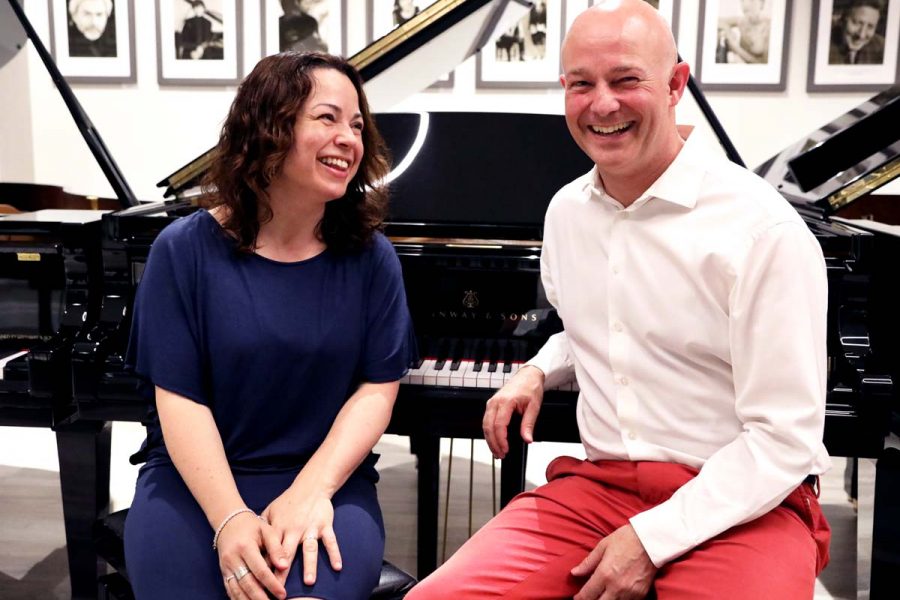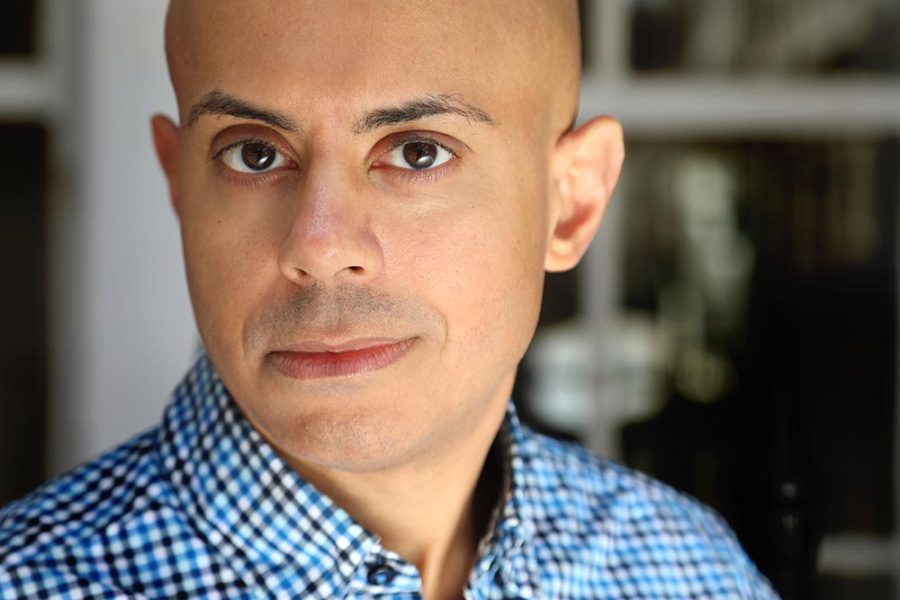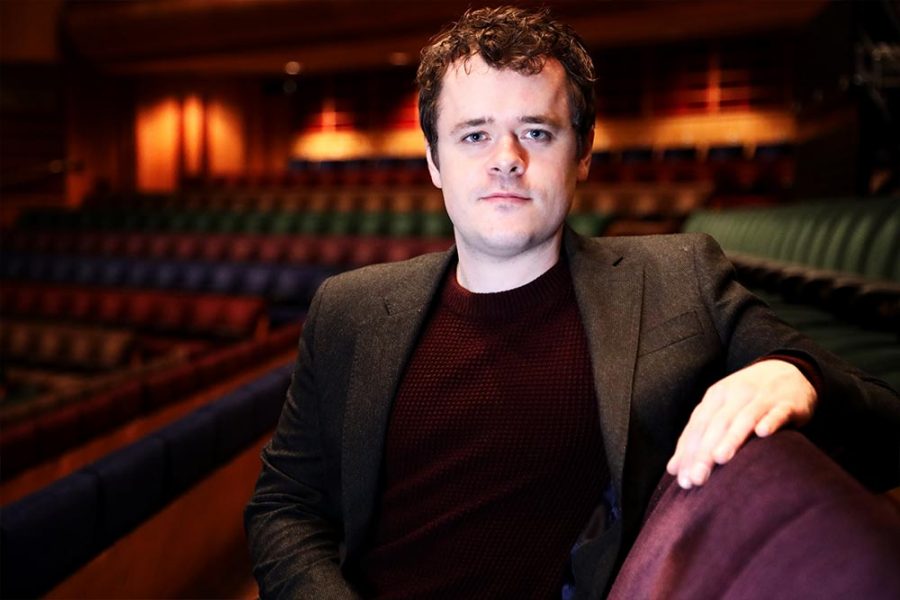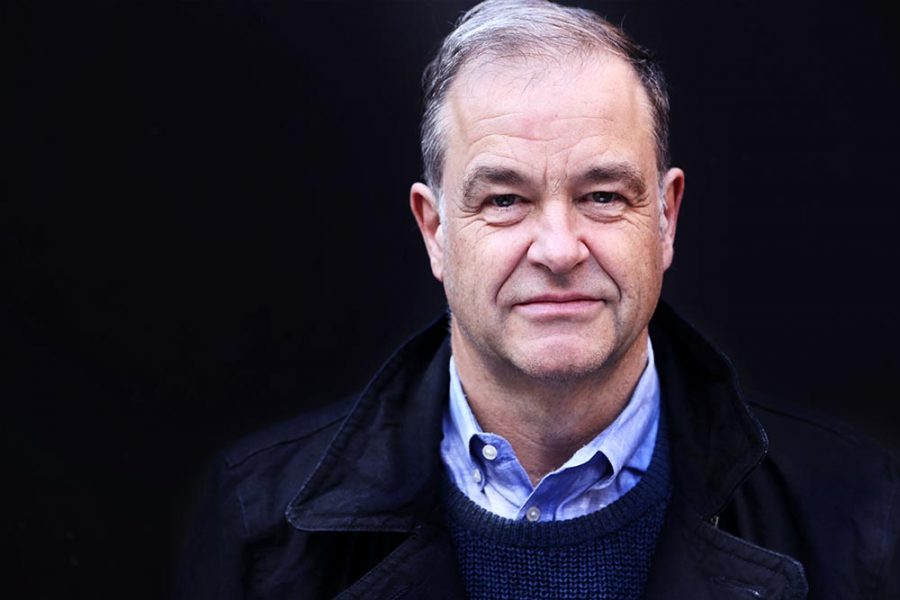“Striving to be the best we can”: Finghin Collins

September 2015
Words by
Emer Nestor
Photos by
Frances Marshall
Since winning first prize at the biennial Clara Haskil International Piano Competition in Vevey, Switzerland (1999), Finghin Collins has embarked upon a flourishing career as a concert pianist and chamber musician.
Ever in demand for his technical dexterity, hypnotizing touch, and interpretative facility, the Dublin-born pianist has taken to the stages of the leading concert venues of Ireland, Europe, the United States and Asia. Collins’s compelling command of the concerto stage has resulted in invitations to play with an array of internationally regarded orchestras including: the Symphony Orchestras of the BBC, Chicago, Houston, Bournemouth, and the City of Birmingham; the Philharmonic Orchestras of London, the BBC, Rotterdam, and Seoul; along with the Royal Philharmonic Orchestra, the Budapest Festival Orchestra, Orchestre de la Suisse Romande, and the Gulbenkian Orchestra. His chamber music presence embraces collaborations with London Winds and the Aviv, Callino, Chilingirian, ConTempo, Ebène, Shanghai, Skampa, St Petersburg, Vanbrugh, Vertavo, and Vogler String Quartets. As a recording artist, Collins has received critical respect for his work with Claves Records in Switzerland. His two double CDs, Schumann: The Complete Works for Piano won Gramophone’s ‘Editor’s Choice’ award in 2006, while his Stanford: Piano Concerto No. 2; Variations on “Down among the Dead Men”, with the RTÉ National Symphony Orchestra and Kenneth Montgomery, earned the ‘Editor’s Choice’ award in 2011. May 2013 saw the release of Collins’s recording of four Mozart piano concertos, directed from the keyboard with the RTÉ National Symphony Orchestra, under the RTÉ lyric fm label. Widely acknowledged for his experience as a performer and programmer, Collins is admired within the Arts administration sector, and currently serves as Artistic Director of the New Ross Piano Festival, and Music for Galway.
Collins met with Final Note in Blackrock to discuss life on the road as a touring performer, the importance of chamber music within his artistic aesthetic, his love for Switzerland, and tips for budding young concert pianists.
...I was instantly curious to discover, learn, listen and love the music that was going on around me."

Did growing up in such a musical home shape your desire to pursue a career in the Arts?
Absolutely! Being the youngest of four musical children (with non-musical parents) meant that I was instantly curious to discover, learn, listen and love the music that was going on around me. When I was 3 my eldest sister Mary (then 13) started me on the piano, and taught me until I was 6, at which point I got an entrance scholarship to the Royal Irish Academy of Music. The house was always alive with music…there were three pianos, a violin and a cello, so the place was never silent. Our poor mother was constantly ferrying us to our lessons.
What impact did the RIAM and John O’Conor have on you as a developing musician?
Massive, and impossible to overstate! I studied with John from the age of 6 to the age of 22, and he had a lasting influence on my entire career, and indeed my life. We are still close friends. He has a special gift for teaching young children, and was fantastically encouraging to me right from the start. He would always find something positive to say before moving on to the bits to correct! Of course when I turned into a difficult teenager and started tackling more demanding repertoire, he also got more demanding…and when I started entering international competitions he was really hard on me! My scores are still full of rude comments with liberal use of exclamation marks. It was just what I needed.
John was never a spoon-feeder and was always an avid traveller, as he combined his busy performing and teaching careers. This meant that I had to become independent from an early age, and got used to learning new pieces quickly without much help — all very good training for the career. One of the things that pleased John and myself in equal measure was my winning first prize at the Clara Haskil Competition at the very end of my studies with him, before moving on to my next teacher; I think this was the first time a fully Irish-trained musician had won an international piano competition. He really was a very inspiring teacher, and remains an inspiration to me to this day.
How was your time at the Geneva Conservatoire?
Just after winning the Clara Haskil Competition in 1999 I embarked on three years’ study with French professor Dominique Merlet, at the Geneva Conservatoire. The lessons took place every three weeks for three days at a time, so I never actually resided in Switzerland, but travelled over and back from Dublin. Despite this, there was a great sense of continuity between the lessons, and my French came on in leaps and bounds. Dominique had a reputation for being a strict and severe teacher, but he turned out to be a thorough gentleman with a great sense of humour, to balance his more serious side. He inspired me to become more self-critical and self-aware, to read my scores with more care, to see myself as the conduit of the composer rather than the centre of attention, and I think I picked up an awful lot from him just by osmosis. It was a great time and I still have many friends and contacts in Switzerland.
For many classical musicians, finding one’s way into the ‘circuit’ is often through competition — how did you cope with the pressures associated with this part of your early training?
From an early age I took part in competitions and yes, for most musicians these are vital rites of passage from the sitting room to the concert stage. In Ireland we are very lucky to have many high quality, excellently run music festivals/competitions, which allow us to cut our teeth from a young age. Every year I did scholarship examinations at the Academy and took part in the Feis Ceoil (Dublin), the Feis Maitiú (Cork), the Arklow Music Festival, and occasionally the Sligo Feis. I also took part (and won) the RTÉ Musician of the Future Competition which was a great boost. When I was 19 I took part in the Leeds Competition — this was a simultaneously terrifying and terrific experience; I was amazed to progress as far as the semi-finals. I had the same result at the Dublin Competition in 1997, and a disappointing result at the Paloma O’Shea in Spain in 1998. Then in 1999 came my breakthrough — first prize at the Clara Haskil in Switzerland. This was a huge help to my career. Taking part in piano competitions is a very stressful experience and not for the faint-hearted. I was indeed fortunate to get first prize…and then I decided to leave it at that!
Having performed with many of the world’s leading orchestras, what elements are vital in creating an authentic collaborative interpretation of any concerto?
Listening. I often say one should play the piano with one’s ears. If you listen to the orchestra, and if the conductor (and orchestral musicians) listen carefully to the soloist, a happy collaboration will inevitably ensue, as long as both parties remain flexible and open-minded! This might seem self-evident, but it doesn’t always happen. Every performance is different, and every interpretation varies slightly. That is what keeps live performances interesting and exciting. Only listening will make it work. The same applies to chamber music of course.
As a pianist, touring and practicing can be a lonely affair — how important is it to you to maintain an equally vibrant presence as a chamber musician?
Vital. If I were playing concertos and solo recitals all the time, it would indeed be a lonely existence. Happily I have always managed to play lots of chamber music, which I adore. The repertoire is so incredibly vast, and while I always return to the great masterpieces, there are constantly new works to explore and learn. I have a lot of regular chamber music colleagues (though no fixed group such as a piano trio etc…), and also love playing with new and different people all the time. Chamber music festivals — which are all the rage these days, and seem to go on all year round — provide wonderful opportunities for interacting with instrumentalists and singers of all shapes and sizes, and this keeps my interest piqued!

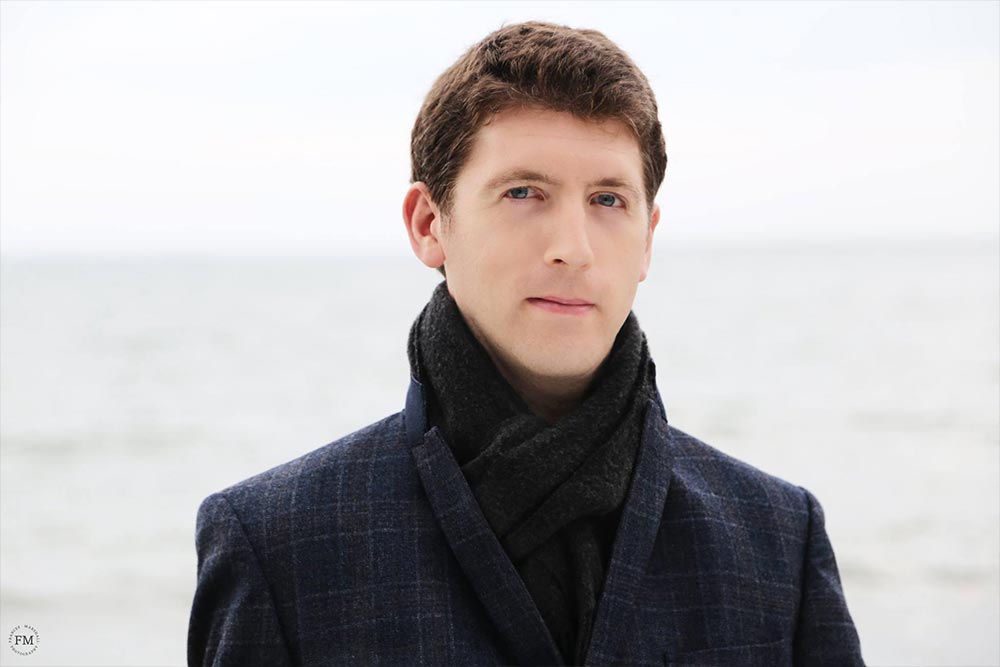


My job is simply to make sure it is personal and meaningful. It is not a question of being lesser or greater than other pianists, simply different and unique."

You recently completed your three-year tenure as the first Associate Artist of the RTÉ National Symphony Orchestra — how was this experience?
Wonderful and highly stimulating! It was with enormous pleasure that I received the invitation from RTÉ to interact with the members of the NSO in this meaningful way. It was fantastic to have the opportunity to perform all the Mozart and Beethoven piano concertos with the orchestra. Of the 23 Mozart concertos, all but three were directed from the piano; this was a wonderful experience and I feel it has greatly enriched me. The musicians of the orchestra were terrifically responsive and positive throughout the project. It was a great challenge, as we often performed the concerts in batches of three, from memory. I also had the opportunity to commission and perform the world premiere of a new concerto by the Irish composer Deirdre Gribbin; I was subsequently invited to perform the UK premiere of the work with the BBC Symphony Orchestra in London. The CD recording, which I made with the orchestra, of four Mozart piano concertos (on the RTÉ lyric fm label) was the perfect rounding-off of the project, and serves as a wonderful memento of our time together.
What motivated your decision to record Mozart’s piano concertos, and were you daunted by the task of adding your voice to the canon of recordings by those such as Gould, Brendel, Perahia, Barenboim, Argerich, Kissen, and Ashkenazy?
I don’t think one can allow oneself to be daunted by the legacy of other pianists. Of course when it comes to recording major works, there is also that situation where you wonder if there is ‘room’ for your recording alongside these greats. But there is of course room for a meaningful, personal recording. My job is simply to make sure it is personal and meaningful. It is not a question of being lesser or greater than other pianists, simply different and unique. If one doesn’t have this confidence in oneself, one might as well give up!
Your interpretation of the German/Austrian repertoire has brought you critical success; do you have any plans to give musical attention to the Great Russian masters in any future recording projects or performances?
Not particularly. The German/Austrian repertoire extending from Haydn, Mozart, and Beethoven to Schubert, Schumann and Brahms will always be central to my repertoire, and will always receive my core attention. I have been playing a lot of Chopin recently, which is also wonderful. While Russian repertoire has never been terribly far from my fingers and concert programmes, I have never focused on it totally. I don’t see that happening in the future, though I would love to add some of the Rachmaninov Preludes and Etudes-Tableaux to my repertoire.
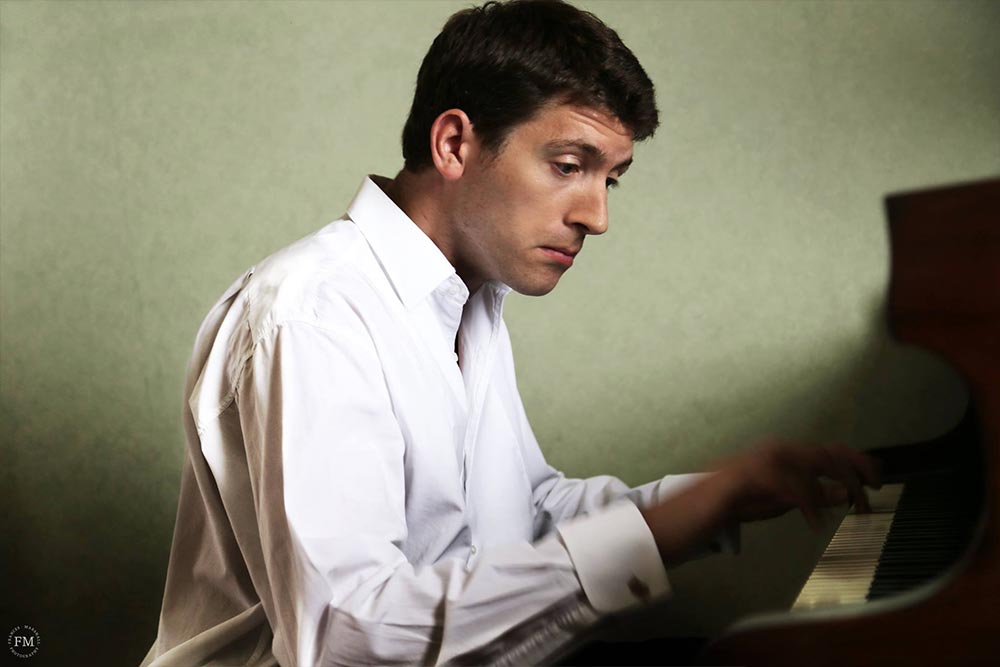


In such a demanding profession, how do you look after your musical self, both physically and mentally?
I don’t find it that demanding really! I think other jobs, such as a hospital consultant, barrister etc…are much more demanding, and it’s great to be one’s own boss. It’s a happy balance between taking each day as it comes, and being very prepared in advance for upcoming engagements. Programme planning is vitally important to ensure that I do not take on too many different pieces (or different new pieces) at the same time. There is a lot of administration involved. Although I do have an agent for concerts outside of Ireland, I book almost all my own flights, and have a lot of interaction with promoters in general. Luckily, I am physically and mentally quite strong (as far as I know!). I love traveling and am a good sleeper. When it comes to nerves and stage fright, I give myself regular severe lectures and tell myself not to be ridiculous; I have done all the practice, I know what I have to do, so stop getting in the way. It is not the end of the world if one plays a couple of wrong notes. The most important thing is to communicate with the audience. One has to learn to perform as well as one can, and not let doubts get in the way.
When preparing for a concert, what is your programming process?
I try to avoid programming all new pieces for a concert programme. The ideal situation is to have a mixture of old and new pieces in each recital. That way, the repertoire renews itself and expands gradually over time. I am not intending to learn the entire piano repertoire over my career! I will only ever scrape the surface. It is lovely to go back to pieces I learnt years ago, and re-discover them and explore new possibilities. It is also very exhilarating, of course, to learn new pieces; one never quite knows how they will feel under the fingers! It can be difficult to come up with interesting programmes, and sometimes promoters can be quite fussy, rejecting certain pieces (for often perfectly legitimate reasons). It is nice when one hits upon an interesting theme for a concert, or some way of linking pieces (though this is not always necessary), and of course the theme should never get in the way of the main objective: to present brilliant music in the best possible light.
Having studied and performed extensively in Switzerland, what do you love most about the country?
I love many different aspects of it. My experiences have almost entirely to do with the French part of Switzerland. The German part seems to be almost an entirely different culture, and many of my colleagues have confirmed this! In fact the inhabitants of Suisse romande love to make jokes about those of the Suisse allemande, and vice versa. I love the scenery, the lakes and mountains, and the train journeys (which are always on time, of course). I love speaking French. I recently played in a lovely festival situated in the small Alpine village of Les Haudères — it was quite heavenly. The best thing about it is, of course, that I have so many friends there, particularly in Geneva and Lausanne. The Swiss record label Claves Records have issued many of my recordings; they have been very good to me. The only downside at the moment is that everything in Switzerland is terribly expensive…so the objective is to earn, not spend, and accept all the private hospitality that one is offered!!!
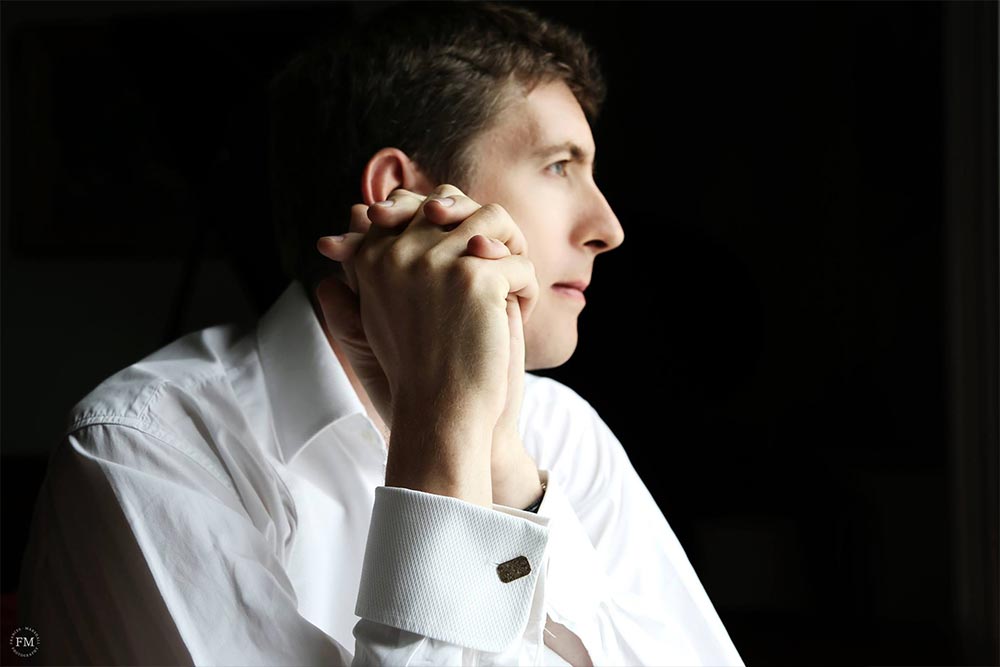

Tell us about your role as Artistic Director of the New Ross Piano Festival, and Music for Galway.
I absolutely love this work and see it as a very significant part of my activity. The work of programming concerts and inviting artists is hugely stimulating and invigorating. The New Ross Piano Festival has been in existence for ten years, and it has been wonderful to watch it grow from very modest beginnings to an event of some importance, and of high quality. We are currently in the middle of a fifteen-composition commissioning scheme, whereby fifteen Irish composers are composing piano works inspired by the fifteen panels of the Ros Tapestry. We have artists of international reputation and faithful enthusiastic audiences.
The Galway experience is a more recent one. I was honoured to take over the Artistic Directorship of Music for Galway from Jane O’Leary two and a half years ago. It is a broader, more extensive offering than that of New Ross — it is, after all, a concert season of over 20 concerts, from opera to chamber music, piano solo recitals to orchestral concerts, and we have just announced a new lunchtime series. This work suits me down to the ground…I love all aspects of it: choosing a theme to run through the season, inviting artists and sorting programmes, seeking sponsorship from local businesses and interested parties. In the case of both New Ross and Galway, I am fortunate to work closely with two wonderful colleagues — Connie Tantrum in New Ross, and Anna Lardi Fogarty in Galway. Both are treasures.
Do you have any advice for young Irish pianists hoping to carve out an international career?
Don’t expect everything to be handed to you just because you can play fast and loud. If you want to be successful it is not enough to be able to play the notes. You must communicate a message in a very personal way to your audience, you must stand out from the crowd, you must love performing with every fibre of your being, and you must be hungry for new experiences all the time. You must be adaptable and flexible, able to perform a piano quintet one day and a piano concerto the next (and travel in between). It is vital to be a good communicator, respond to emails, respond to the needs of promoters, and not to let success go to your head. No matter how good you are, there will always be somebody to replace you. As the saying goes, “you are only as good as your last performance”. I would encourage young Irish musicians, no matter what instrument they play, to travel abroad to summer courses or competitions and measure themselves against their peers. Don’t live in a bubble. Listen to music beyond your own comfort zone. If you are a pianist, listen to operas and string quartets. If you are a string player, listen to Bach cantatas and piano concertos etc…. Go to lots of concerts (students do not go to enough concerts, generally speaking). Listen to recordings of yourself playing. Always remain curious. We never stop striving to be the best we can.
When not music making, how do you like to unwind?
I love to go out for dinner or a drink after a performance with friends or colleagues. When not performing I love to spend time in my country place in Kilkenny where I walk by the Barrow, tend the garden, practice, or cook for friends (or, even better, have them cook for me!). I regret that I do not do enough (any) sport, but it is almost impossible to get into any regular rhythm as every week — indeed every day — is so different. I am supremely lazy when it comes to such things.
What’s next on the cards for you?
Right now I am about to perform a piano quintet in Geneva, and then travel to Hungary to perform with some super colleagues in the Kaposvár Chamber Music Festival. No holiday this summer, but lots of travelling and lots of fun concerts…very little stress. Then we have the launches of New Ross (2015 festival) and Galway (2015-16 season), where we announce our programmes and seek press coverage, which is always a challenge. I am constantly keeping an eye on upcoming repertoire — including three piano concertos to conduct at the New Ross Piano Festival! Following that, Haydn and Stravinsky with the ICO, and violin recitals with Elizabeth Cooney and Ilya Gringolts. I’m also working on expanding my online presence by uploading some specially recorded video performances, not to mention Frances’s wonderful new pictures. Never a dull moment!
To find out more about Finghin Collins see: www.finghincollins.com
All images displayed in this article are subject to copyright.
Share this article


